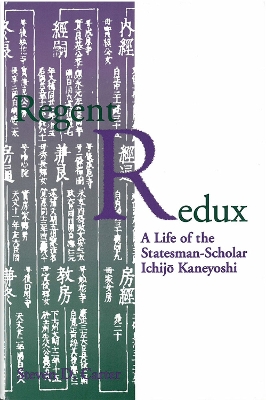Michigan Monograph Series in Japanese Studies
2 total works
- This book tells the story of a remarkable man who, against his will and largely against his knowledge, lived through what we now regard as the final decline of the ancient nobility in Japan. It is as a scholar, especially of the Tale of Genji and other texts of the classical Japanese canon, that Ichijô Kaneyoshi (1402-81) is now remembered, when he is remembered at all. Yet in his own time he was much more than that: the heir of a venerable court lineage, a poet and patron of artists and literati, a master of esoteric lore and doctrine, and a statesman and politician very much engaged in the contests and discourses of his time.
Kaneyoshi was born into an era of relative prosperity for the court. Ashikaga Yoshimitsu, one of the most courtly of shoguns, was in firm control of the government, in the Kyoto area at least, and Kaneyoshi's own father was serving as imperial regent. In succeeding years, however, the court and its families were severely tested by political, economic, and social exigencies beyond their control.
Shotetsu monogatari was written by a disciple of Shotetsu (1381-1459), whom many scholars regard as the last great poet of the courtly tradition. The work provides information about the practice of poetry during the 14th and 15th centuries, including anecdotes about famous poets, advice on how to treat certain standard topics, and lessons in etiquette when attending or participating in poetry contests and gatherings. But unlike the many other works of that time that stop at that level, Shotetsu's contributions to medieval aesthetics gained prominence, showing him as a worthy heir-both as poet and thinker-to the legacy of the great poet-critic Fujiwara no Teika (1162-1241).The last project of the late Robert H. Brower, Conversations with Shotetsu provides a translation of the complete Nihon koten bungaku taikei text, as edited by Hisamatsu Sen'ichi. Steven D. Carter has annotated the translation and provided an introduction that details Shotetsu's life, his place in the poetic circles of his day, and the relationship of his work to the larger poetic tradition of medieval Japan. Conversations with Shotetsu is important reading for anyone interested in medieval Japanese literature and culture, in poetry, and in aesthetics. It provides a unique look at the literary world of late medieval Japan.

